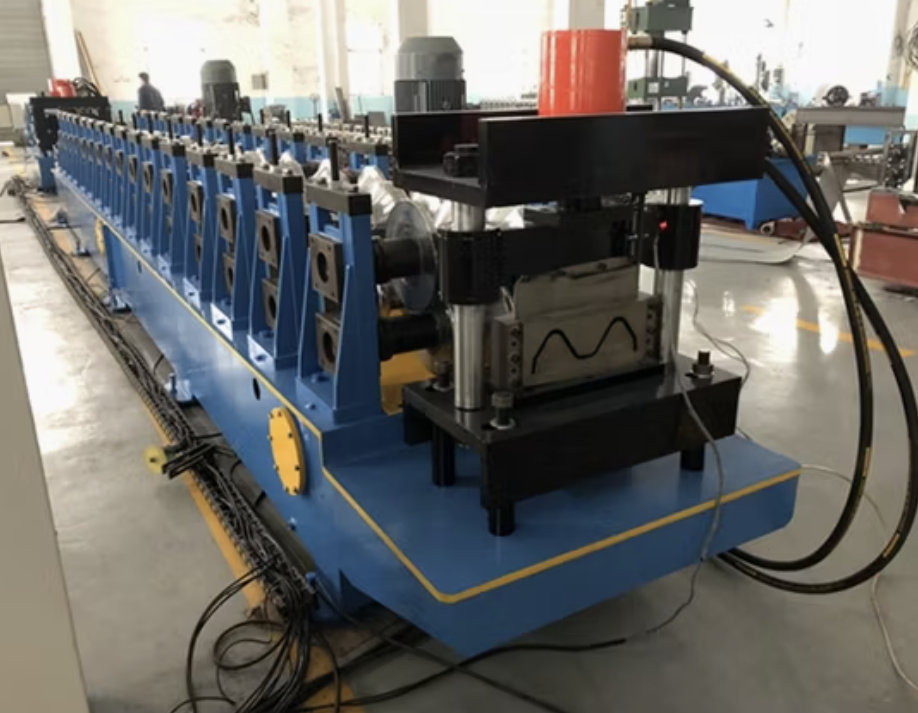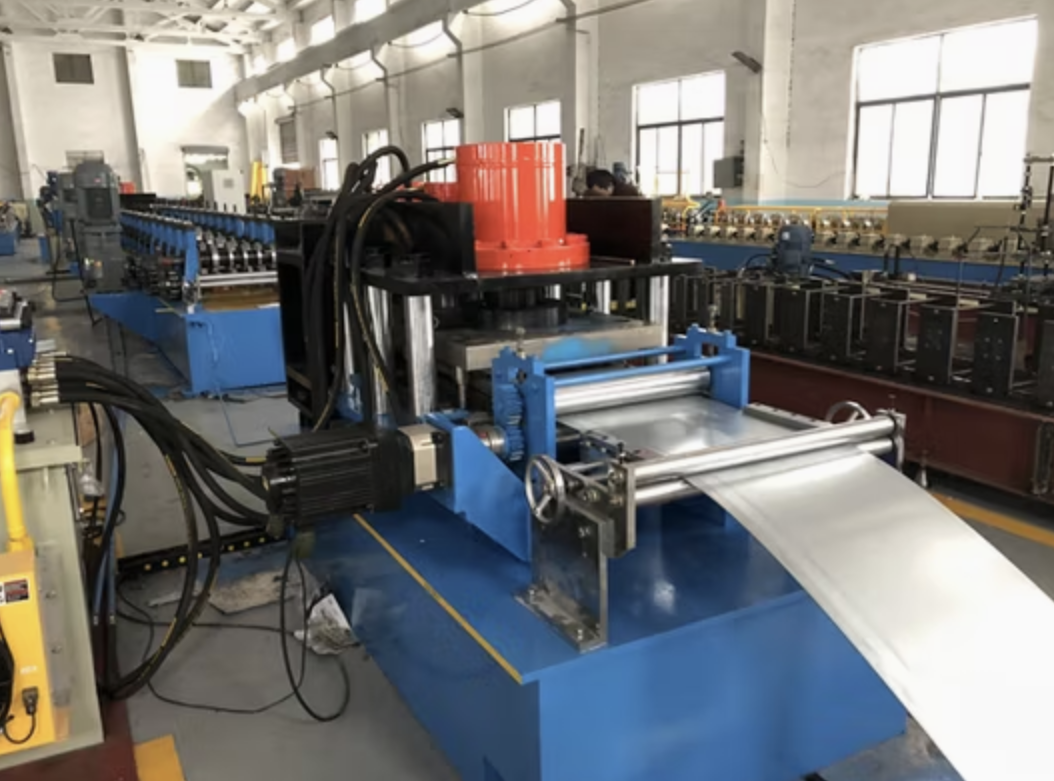To express an interest in this machine please submit the form below.

Not Sure What Machine You Need?
Select Your Profile, We'll Match It
Choose your desired profile drawing, and let Machine Matcher connect you with the best roll forming machine tailored to your needs.
Browse Profiles


Guardrail roll forming machines are specialized equipment designed to produce highway guardrails and crash barriers, commonly used for road safety and infrastructure projects. These machines ensure the precise and efficient manufacturing of guardrails with consistent quality and durability. Guardrails are essential for vehicle and pedestrian safety, making the reliability of the manufacturing process critical.
This roll forming equipment uses a series of rollers to shape flat metal sheets into W-beam, Thrie-beam, or other guardrail profiles. It accommodates a variety of materials such as galvanized steel, stainless steel, and aluminum, offering versatility in production to meet global safety standards.
A guardrail roll forming machine operates in a sequential process:
The process is fully automated, reducing labor costs and ensuring high precision, making it suitable for mass production.
The production capacity varies depending on the machine speed. Standard machines operate at 10–15 m/min, while high-speed machines can reach up to 30 m/min.
Yes, the machine can be configured to produce W-beam, Thrie-beam, and other custom profiles with interchangeable rollers and dies.
Guardrail roll forming machines can process galvanized steel, stainless steel, aluminum, and pre-coated steel within the specified thickness range of 2.0–4.0 mm.
Yes, the machine can be customized to match your region's power supply requirements, such as 380V, 50Hz, or 220V, 60Hz.
Routine maintenance includes lubrication of moving parts, inspection of rollers for wear and tear, regular cleaning, and ensuring proper alignment of components.
The hydraulic punching system is equipped with pre-designed dies that can be customized for different hole sizes and positions as required by guardrail installation standards.
Optional extras include an automatic stacker, remote PLC control systems, advanced coil handling systems, and additional safety enclosures.
Delivery time typically ranges from 60 to 90 days, depending on customization requirements and order volume.
Yes, it can be integrated seamlessly into an existing production line with minimal adjustments.
Most manufacturers offer a 12–24 month warranty, covering parts and labor for manufacturing defects.
Copyright 2026 © Machine Matcher.